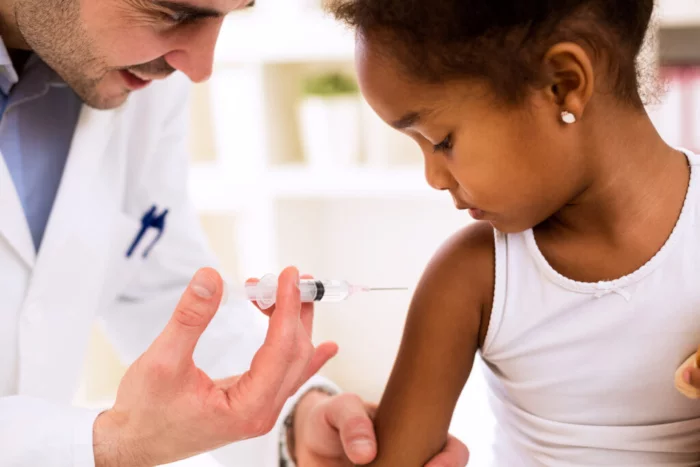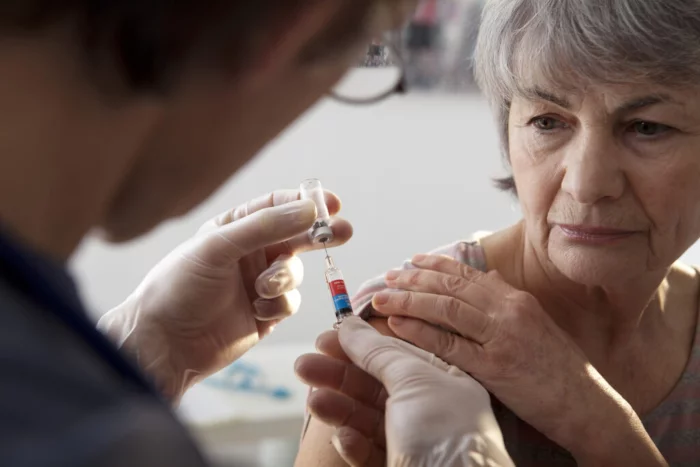The only vaccination that is mandatory in Germany is the measles vaccine. Parents who refuse to vaccinate their children will face a fine of up to €2,500. Other vaccinations – while not mandatory – are strongly recommended to prevent the spread of infectious diseases and illnesses.
The Permanent Vaccination Commission (Ständige Impfkommission or STIKO), an independent expert panel that regularly publishes up-to-date information and statistics for the public, provides advice so you can make an informed decision.
This article – provided by international health insurer Allianz Care – explains all you need to know about your family’s vaccinations in Germany, including the following:
Allianz Care
Allianz Care is a world leader in providing international health insurance. Their various premiums provide professionally designed solutions for a variety of expat lifestyles. So, wherever your life takes you, make sure you have the right health protection for you and your family with Allianz Care.
The German vaccination system
The Robert Koch Institute publishes the guidelines for the German vaccination system. They also provide relevant and up-to-date information on vaccines that help prevent the spread of contagious diseases.

All public health insurance firms pay for the vaccinations recommended by the Permanent Vaccination Commission according to the official vaccination guideline. Some health insurance plans in Germany also pay for vaccinations against diseases that you might catch while on holiday abroad (Reiseimpfung). You and your children are entitled to receive inoculations free of charge via your statutory health insurance package.
Public opinion on vaccinations in Germany is positive; as a result, the current national vaccination rate is 93%. However, authorities report that this is still slightly below the official goal of 95%. German Health Minister Jens Spahn has recently put forward a proposal to encourage vaccinations and has suggested implementing fines of €2,500 and kindergarten bans on unvaccinated children.
Insurance for vaccinations in Germany
Germany is keen to ensure that all residents have access to vaccinations through their health insurance package. There are a number of private health insurance providers in Germany that cover vaccinations, such as:
Vaccinations for children in Germany
Vaccinations for children in Germany are free. When you are vaccinated for the first time, you receive a yellow booklet called a vaccination record (impfpass, impfausweis, or impfbuch) that gives a record of your immunization schedule. You should bring your vaccination record along to all your medical appointments. Up until the age of six, all children’s medical appointments and exams are documented (in German) to recognize and track any potential infectious illnesses.

In Germany, the national routine childhood immunization schedule comprises the following vaccinations:
- Chickenpox (varicella) vaccine: at 11–14 and 15–23 months old
- Diphtheria, Tetanus, and Pertussis (whooping cough) vaccine: at two, three, four, and 11–14 months old; following this, a booster dose at 5–6 years old
- Hepatitis B vaccine: at two, three, four, and 11–14 months old
- Hib vaccine: at two, three, four, and 11–14 months old
- HPV vaccine (girls only): one dose between 9–14 years old
- Measles, mumps, and rubella (MMR) vaccine: at 11–14 months as well as at 15–23 months old
- Men C vaccine: one dose from 12 months old
- Pneumococcal (PCV) vaccine: at two, four, and 11–14 months old
- Polio vaccine: at two, three, four and 11–14 months old; following this, an optional booster dose between 9–16 years old
- Rotavirus (gastroenteritis) vaccine: at six weeks, two months, and four months old
COVID-19 vaccination in Germany
COVID-19 vaccinations are available throughout Germany free of charge. You may be vaccinated at a doctor’s surgery, a vaccination center, or by an in-house doctor at your company. To arrange your COVID-19 vaccination, contact your doctor’s surgery. In some cases, it is possible to be vaccinated at a vaccination center without an appointment – check the website of your federal state government to find out dates.
For general information on COVID-19 in Germany, check our guide to the COVID-19 pandemic in Germany. You can find out about vaccination schedules, as well as the latest government restrictions.
Vaccinations for special groups in Germany
For those who fall in the category of a special or at-risk group, there are also several recommended vaccines:
- Chickenpox vaccine: at-risk groups such as the elderly or those with serious health conditions (e.g., cardiovascular or lung disease)
- Flu vaccine: for medical staff, the police, drug-users, prisoners, pregnant women, adults from age 60, and at-risk groups such as the elderly or those with serious health conditions (e.g., cardiovascular or lung disease)
- Hepatitis A and B vaccine: for medical staff, the police, drug users, prisoners, and pregnant women
- Measles, mumps, and rubella (MMR) vaccine: at-risk groups such as the elderly or those with serious health conditions (like cardiovascular or lung disease)
- Men C vaccine: at-risk groups such as the elderly or those with serious health conditions (e.g., cardiovascular or lung disease)
- PCV vaccine: at-risk groups such as the elderly or those with serious health conditions (e.g., cardiovascular or lung disease)
- Pneumococci vaccine: adults from age 60 and at-risk groups such as the elderly or those with serious health conditions (e.g., cardiovascular or lung disease)

Remember to always check with a healthcare professional in case of individual enquiries on your vaccination requirements.
Travel vaccinations in Germany
Depending on your nationality, you may need certain vaccinations to travel to Germany. Check with a German embassy or consulate in your area before you travel to make sure because it varies based on your home country.
Some health insurance providers may cover the costs of travel vaccinations (Reiseimpfung) against diseases that you could encounter while abroad. Get these ideally two to three months before travel:
- Cholera
- Rabies
- Tick-borne encephalitis (TBE)
- Typhoid fever
- Yellow fever
Check with your local health insurance provider directly to see if travel-related healthcare is covered in your health insurance plan.
Useful Resources
Looking for more information on vaccinations in Germany?




